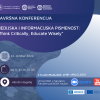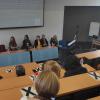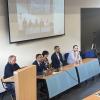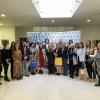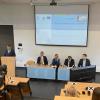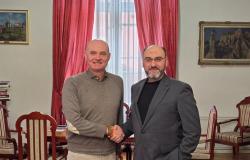Media and information literacy: "Think Critically, Educate Wisely" conference held
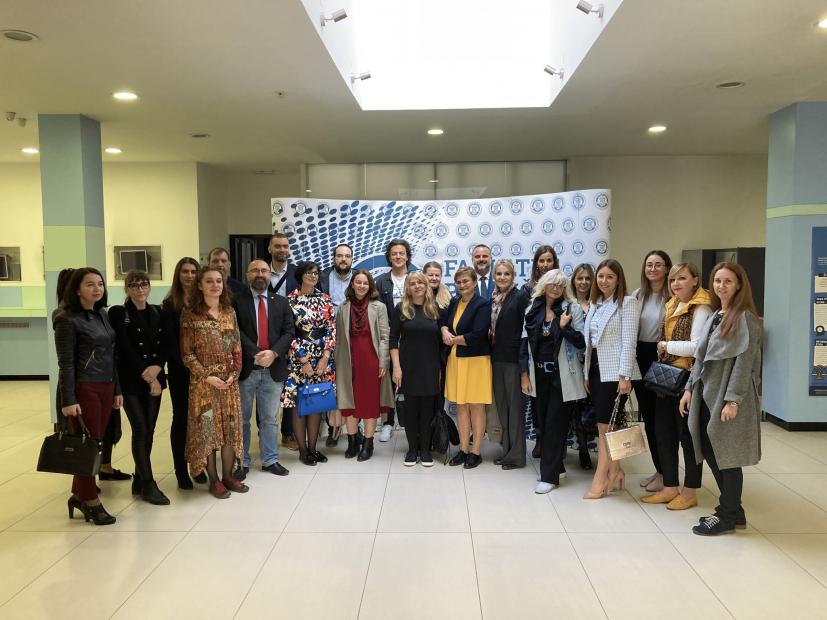
The University of Sarajevo - Faculty of Political Sciences organized the conference Media and Information Literacy: Think Critically, Educate Wisely on Saturday, 22 October 2022.
The Institute for Social Research of the Faculty of Political Sciences together with partners UNESCO/EU and over 180 teachers and librarians from Sarajevo Canton, Herzegovina-Neretva Canton and Republika Srpska presented the results of project activities with a focus on the pilot training program for teachers and librarians at the final conference in Sarajevo. and other expert associates for media and information literacy (MIP), which were held during the past 2021/2022 school year.
The conference was held in a hybrid format in the amphitheater of the Faculty of Political Sciences and broadcast on ZOOM and the Faculty's YouTube channel, and in addition to librarians and teachers, invited guests, experts in the field of education, media and information literacy, as well as representatives of educational authorities and of UNESCO.
In partnership with other public universities from Banja Luka, East Sarajevo and Mostar, the University of Sarajevo has been working strategically for seven years on the scientific research-based promotion, development and improvement of media and information literacy in Bosnia and Herzegovina in order to successively approach overcoming the second wave of the digital divide that refers to having the knowledge, skills and values necessary for the digital age.
Siniša Šešum, head of the UNESCO office in Bosnia and Herzegovina, took the opportunity to emphasize that extremely important work has been done in the project activities so far, primarily thanks to the team gathered around the Faculty of Political Sciences in Sarajevo, but also to the cooperation of all partners throughout Bosnia and Herzegovina. which directly contributed to the strengthening of freedom of expression in the context of free, independent and pluralistic media. “When we talk about media and information literacy, what is very important for us at UNESCO is that it is an inevitable competence of the twenty-first century. We cannot do anything without media and information literacy, but it is not only the media and related to literacy itself, but it is a complex set of things that bind education as well, which we see through cooperation with the Faculty of Political Sciences, all ministries and other universities in Bosnia and Herzegovina,” emphasizes Sešum.
According to the results presented in the book Media and Information Literacy: Research and Development (2020), one fifth of the surveyed teachers and librarians in Bosnia and Herzegovina do not consider that they have basic information about what media and information literacy represents, thus pointing to the need for continuous work not only on teaching skills, but also critical reflection and co-contextualized understanding of MIP as a cross-curricular competence.
Considering the role of librarians and teachers as key and target groups and indispensable partners in the performance of activities and the joint development of media and information literacy in educational systems, and following the recommendations and guidelines of previous activities, consultations and research, a training program in over thirty schools throughout Bosnia and Herzegovina focused on two segments: continuing the development of MFA competencies in primary and secondary schools in the Republic of Srpska, Herzegovina-Neretva Canton and Sarajevo Canton, as well as improving interprofessional cooperation through all subjects in schools.
The methodological approach to the actualization of media and information literacy in schools is conceived on the basis of guided research learning. A necessary step was to present this pedagogical approach not only to teachers and librarians, but also to school principals, professional associates, and finally to students, so that everyone involved in the educational process would understand the importance of understanding media and information competencies as integral skills, and the research approach as a key learning factor.
This activity was held as part of the project “Building trust in the media in Southeast Europe and Turkey - Phase II” supported by the EU and UNESCO.




